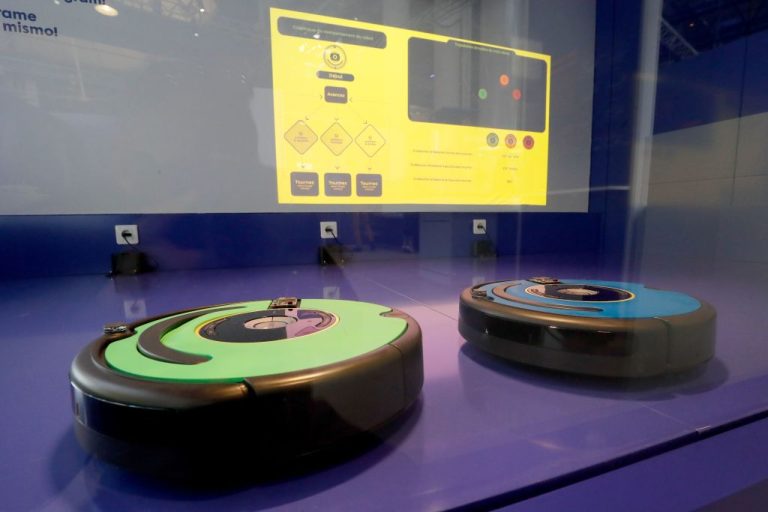Amazon just purchased a vacuum bot that not only sucks up your dust, but also your personal data by mapping your house and sharing the information with its mother base.
Amazon announced the $1.7 billion merger with iRobot, producer of Roomba, a very nosy vacuum cleaner that sticks its camera into the dirty clothing littering around your bedroom, identifies it, and reports on it to ground control.
The latest model, the J7, is mounted with both camera and artificial intelligence, making it possible to map your house and identify the objects therein.
READ MORE ABOUT AMAZON OVERREACH
- How To Recognize and Break an Amazon Addiction
- Vaccinated Amazon Warehouse Staff to Wear Stickers ‘Like a Reverse Scarlet Letter’
- Amazon Delivery Partners Say the Tech Giant Is Squeezing Them Out of Business
- Hundreds of Thousands Caught in Chinese 5-Star Amazon Review Scam: Report
And, of course, your household is a trove of information that can, and will, be sold off to big data collectors such as not only Amazon, but Google, and Apple. But the good news is, the e-commerce giant announced it would share Roomba’s acquired data with its owner’s consent only.
A happy marriage?
“Since we started iRobot, our team has been on a mission to create innovative, practical products that make customers’ lives easier, leading to inventions like the Roomba and iRobot OS,” said Colin Angle, CEO of iRobot, according to a Press Release by the company dated Aug. 5.
Success
You are now signed up for our newsletter
Success
Check your email to complete sign up
“Amazon shares our passion for building thoughtful innovations that empower people to do more at home,” Angle said. “I cannot think of a better place for our team to continue our mission. I’m hugely excited to be a part of Amazon and to see what we can build together for customers in the years ahead.”
Many netizens, however, didn’t appraise the acquisition with the same enthusiasm, instead, sounding the alarm bells, with some going so far as to call it “pure dystopia.”
One Twitter user said: “Add this to Alexa, listening to you all day long, Ring, watching your front door all day long, and OneMedical, a company that knows all your secrets, and suddenly Amazon has built a pretty powerful panopticon controlled by Jeff Bezos.”
Other household spying devices
Apple has also been making plans to map the interior of homes through its 3D RoomPlan feature on its latest mobile phone models, an app that’s operated through a built-in laser scanner device.
The Roomba also brings to mind its Amazon-created and not-so-successful counterpart, the Astro, a kind of wheeled Alexa, and another little eavesdropper, but with one minor difference: It doesn’t suck dust.
Motherboard claimed it had obtained documents about the Astro that deliberately stated its purpose was to spy on people’s homes and even create heat maps of heavily trodden areas. In the end, many people apparently decided not to buy given its data leaking properties — or maybe just because it couldn’t vacuum clean.
Insatiable hunger for data
The acquisition doesn’t seem to be an isolated case, as Amazon also acquired healthcare company One Medical for $3.9 billion, which provided the online shopping Moloch access to millions of end-users medical data.
Furthermore, the wholesaler has its tentacles spread in the grocery businesses by devouring the Whole Foods chain in 2017 and, more recently, gobbling up the popular online food order and delivery grocer GrubHub.
If we consider the data harvesting the company has been doing, such as collecting voice samples via Alexa, residential network activity through its Eero mesh routers system, and surveillance video footage through Ring cameras, one gets a pretty fine-grained picture of the invasion of our private realms that Jeff Bezos & Co. have been working on.
Adding up to the fact that Amazon Web Services runs a large part of the internet and that 1 out of every 153 U.S. citizens works for the behemoth, we might come to the conclusion that the tech hulk’s usurpation of our private lives is hardly avoidable and unstoppable.















